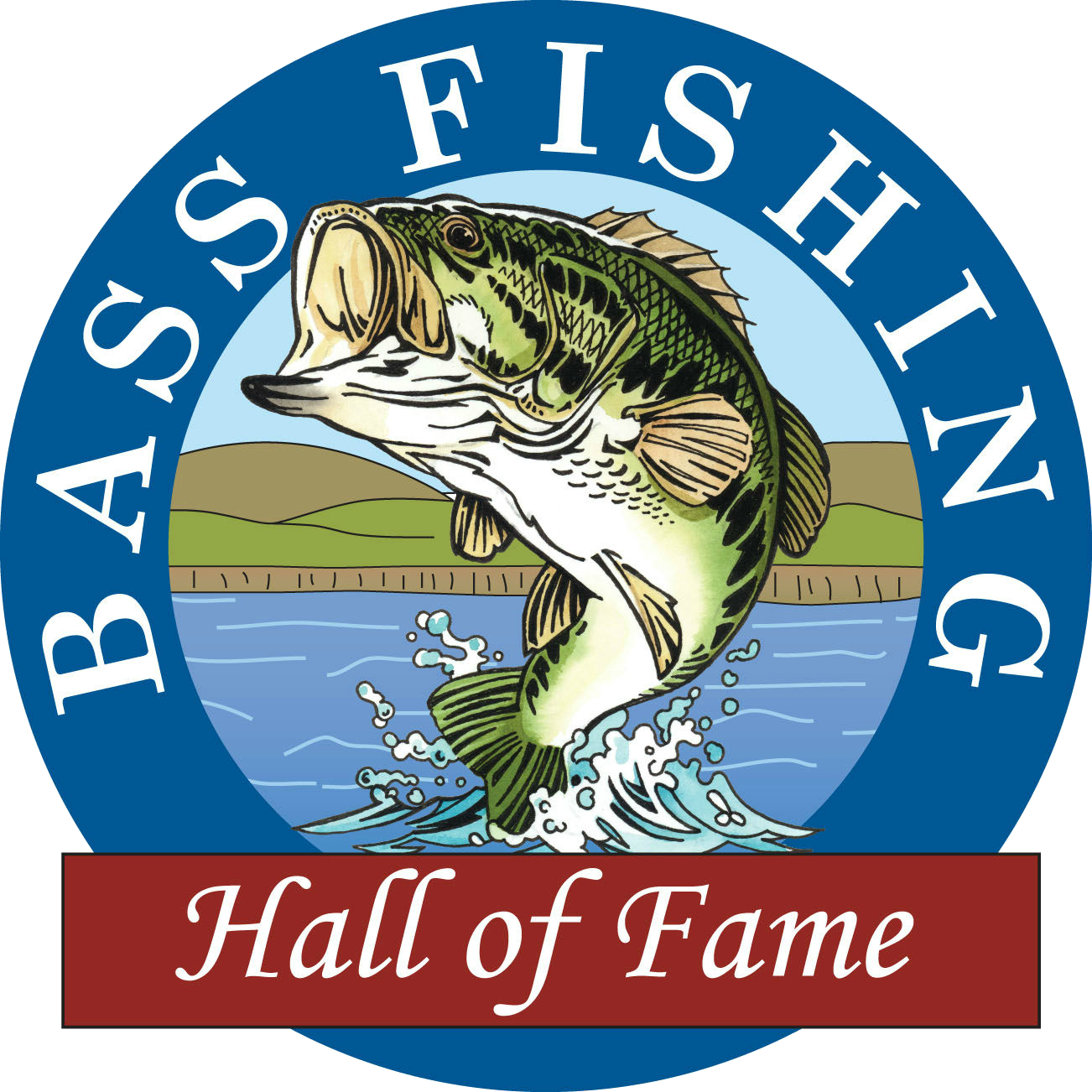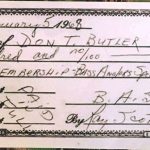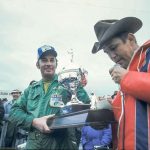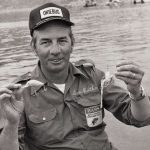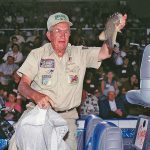Don Butler
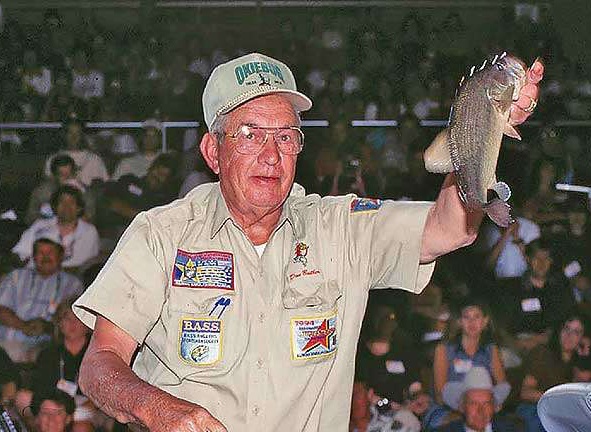
Don Butler
Inducted: 2003
Don Butler (1930 – 2004)— He’s been called Ray Scott’s “guardian angel” and the “patron saint of bass fishing.” While Don Butler might not have agreed with those descriptions, there’s no doubt Butler came to the rescue at several junctures in the birth and growth of Scott’s Bass Anglers Sportsman Society (B.A.S.S.).
When Scott was organizing his first professional bass tournament, the All American at Beaver Lake, Arkansas, in 1967, Butler convinced enough of his fellow Tulsa Bass Club members to put up $100 entry fees and help make the event a success.
In January 1968, as he was forming B.A.S.S., Scott met with the Tulsa Club — one of the first bass fishing clubs in America — to get its support. The meeting was getting unruly as Scott presented his idea to start an organized society for bass fishermen. Some were skeptical of Scott’s ability to make bass fishing a professional sport like golf. Finally, Butler, who helped found the club, stood up and restored order. “Everybody shut up and let this man tell us what he wants to do,” he said.
By the end of the evening, the Tulsa Bass Club bought into that idea. Butler, a lumberyard owner whose store also sold fishing tackle, soon became the first member of B.A.S.S.
“I did it more to encourage him than to have the elite status of being the first to join,” Butler explained later. “I thought that if I could fire Ray up, then it would inspire him to get the idea going. And I wanted to be part of it. I didn’t know where it was going, and neither did Ray, but I believed in him and his idea to bring us all together.”
Months later, Scott was struggling to push B.A.S.S. over the top and send it on its rollercoaster ride to growth and success. The two talked over the phone on a frequent basis, and during one call Scott told Butler about a warranty card list he needed to buy from Abu Garcia for a direct mail campaign. Valued at $10,000, the list was much too pricey at the time for Scott. The next morning, he received an anonymous Western Union Telegram directing him to go to a local bank. There, he was shocked to collect $10,000 from an unknown donor, which later proved to be Butler.
In addition to being a visionary, Butler was a topnotch angler and an entrepreneur. Back when spinnerbaits were just beginning to catch on, Butler designed and introduced the “S.O.B.,” which stood for Small Okiebug Spinnerbait. That bait earned Butler the title of world champion when he won the second Bassmaster Classic, held in 1972 on Percy Priest Reservoir at Nashville, Tennessee.
Butler earned another B.A.S.S. national tournament title, winning the 1973 Arkansas Invitational, on Beaver Lake, with an incredible catch of 56 pounds, 14 ounces. He fished a total of 26 tournaments before health issues forced him to retire. But during his brief career, Butler finished in the Top 10 in half of the events he fished, and he almost always ended in the Top 30.
Recognizing business opportunities in the fishing industry, Butler founded a wholesale tackle business he called Okiebug Distributing Co. One of his early customers was an up-and-coming pro angler on the B.A.S.S. Tournament Trail who was getting into the retail business. The young man, Johnny Morris, would fill up a U-Haul trailer with bass baits and tackle from Butler’s warehouse and haul it back to Springfield, Missouri, to stock his Bass Pro Shops store.
When Scott introduced catch-and-release to bass fishing and mandated that tournament contestants keep their catch alive, it was Butler who designed the first aerated livewell.
A dedicated conservationist, Butler also donated his time and resources to programs designed to introduce youngsters to fishing and other outdoor sports.
Reflecting on his support and encouragement of Ray Scott and his grand scheme of organizing bass anglers, Butler recalled, “It was hard to believe what he said back then. Some people were cynical, and others believed in it like I did. Now, to see it really happen has been a great, fulfilling reward to me.”
Butler died in December 2004 after a long battle with cancer. He was 74 years old.
